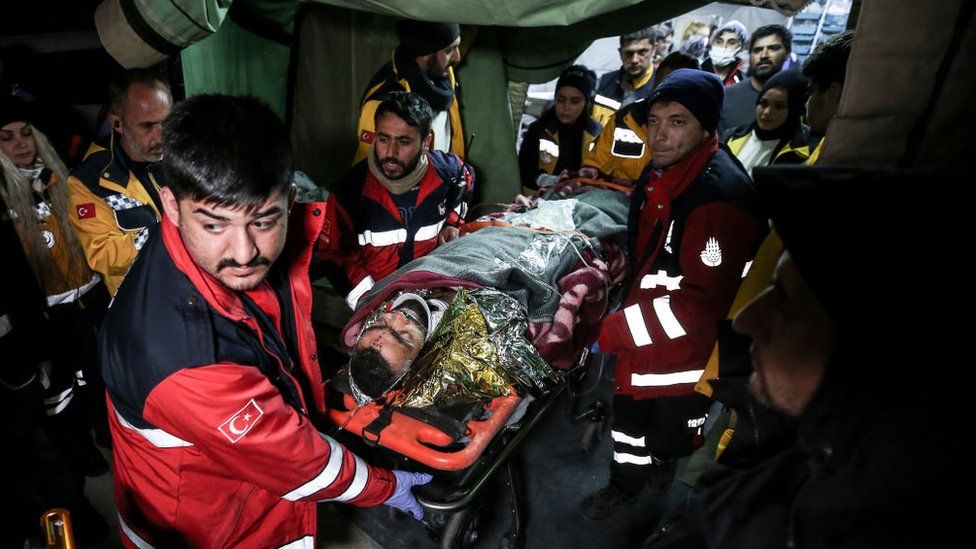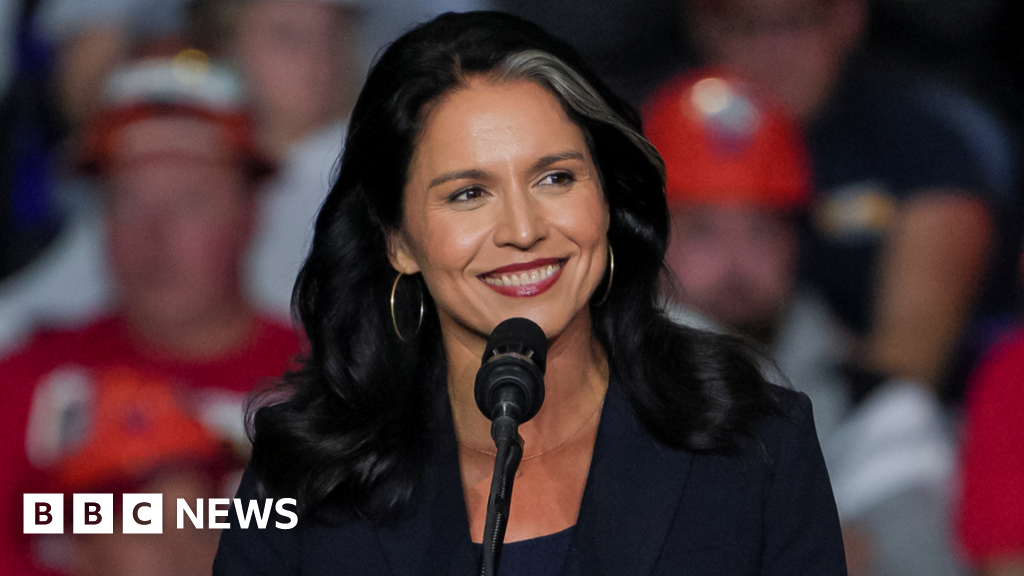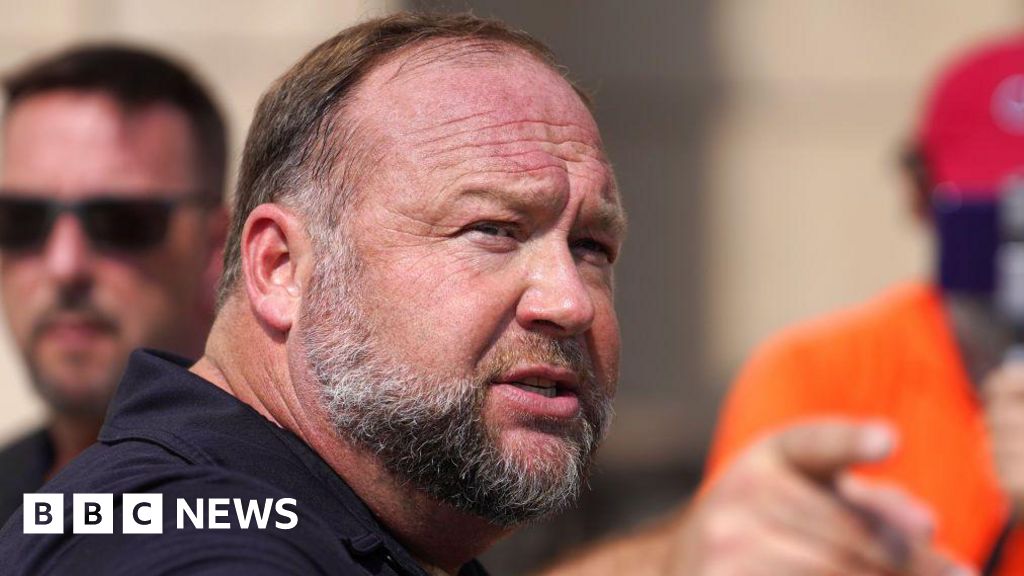ARTICLE AD BOX
 Image source, Anadolu Agency
Image source, Anadolu Agency
Rescues like that of Hakan Yasinoglu are getting rarer
By Phelan Chatterjee
BBC News
Rescue workers in Turkey have pulled at least three men from the rubble, more than 11 days after they were trapped when an earthquake hit the country.
Hakan Yasinoglu had been stuck under a flattened building the hard-hit Hatay province for 278 hours when workers reached him on Friday.
Teenager Osman Halebiye and Mustafa Avci, 34, were also saved in Antakya.
"I had completely lost all hope. This is a true miracle," Mr Avci's father told the Reuters news agency.
"I thought nobody could be saved alive from there," he added. Mr Avci's daughter was just a few hours old when the quake struck, and as he was loaded onto a stretcher by paramedics he was connected with his child via video call.
His wife, Bilge Avci, managed to avoid the earthquake's devastation and escaped with their child - but Mr Avci got trapped under the rubble, according to local media. Mr and Mrs Avci - and baby Almile - were reunited late on Friday at a hospital in the southern city of Mersin.
Image source, Anadolu Agency
Image caption,Baby Almile's family reunited after her father was trapped under a building for 11 days
The latest rescues come as the death toll caused by the 7.8 magnitude earthquake in Turkey and Syria passed 41,000 - a figure which is expected to rise dramatically.
As time passes, officials are less optimistic that they can continue to rescue people trapped beneath the rubble. This is partly due to limits on how long the human body can survive without water, and experts say most rescues occur within the first 24 hours of a disaster.
The reality was reflected as Mr Yasinoglu, in his 40s, was taken from the ruins of a building to a waiting ambulance. Unlike previous rescues which saw search teams celebrating, the mood on the ground was subdued and sombre, AFP news agency reported.
Meanwhile, around the world, Muslims have performed absentee funeral prayers for the many who were unable to receive full burial rites.
The UN has launched an appeal for over $1bn (£830m) to fund the Turkish relief operation, and another $400m (£332m) for Syrians. Aid groups say survivors will need months of help to rebuild their lives.
The Turkish government has also faced criticism over its handling of the disaster, and some have questioned the state's preparation for such a tragedy.
But while President Recep Tayyip Erdogan has conceded that the emergency response to the disaster was slow in places, he has urged Turks not to listen to those whom he accuses of politicising a tragedy.
Meanwhile, neighbouring Syria's death toll has not changed for several. Most of the casualties have been reported in the opposition-held north-west, where aid has been slow to arrive.
The London-based Syrian Observatory for Human Rights reported on Friday that President Bashar al-Assad's forces had shelled the western town of Atareb and other quake-ravaged areas held by rebels, in the first fighting since the earthquake struck. The BBC has not verified these reports.

 1 year ago
29
1 year ago
29








 English (US)
English (US)